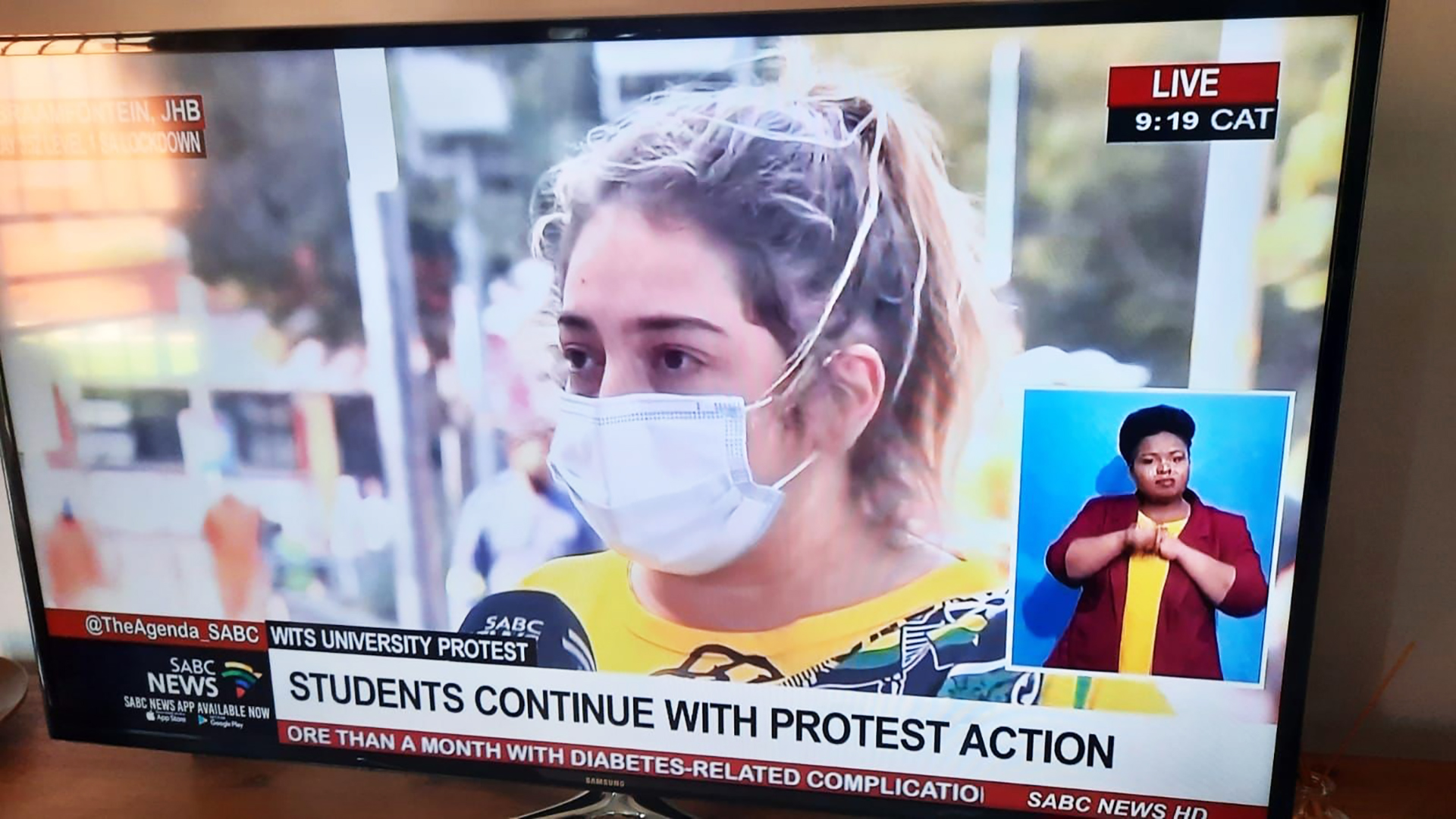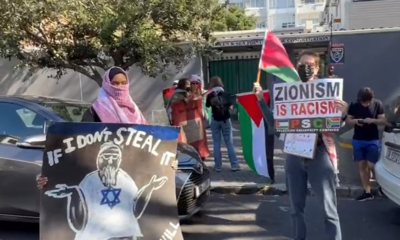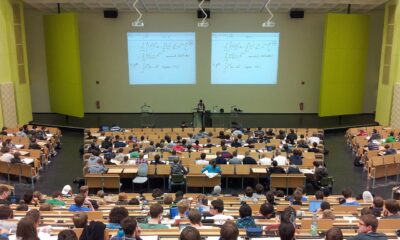
Banner

Wits protest an education in activism
Published
3 years agoon
By
Jordan Moshe“When I look back to my youth in years to come, I don’t want to have to tell my children I was one of the people who kept to the side and stayed silent. I want to tell them that as a white, Jewish woman in a democratic South Africa, I led.”
So says Gabi Farber, a student activist who, together with other Jewish youth, has committed herself to the fight against financial and academic exclusion at South African universities.
They join a growing movement of university students who in recent weeks embarked on a nationwide protest over tuition fees with demands including the allocation of funding for excluded students and a zero fee increase for the 2021 academic year.
Farber, the legal and policy officer of the Student Representative Council (SRC) at the University of the Witwatersrand (Wits), has been integrally involved in the protest.
“We have been on the ground every day,” she told the SA Jewish Report. “Walking through the streets of Braamfontein creating mass awareness about the students’ financial-exclusion crisis.”
Following the shutdown of various campuses, violence has escalated in the past few days, with police responding to demonstrations with rubber bullets, stun grenades, and teargas, and arresting protesting students in Braamfontein. A bystander, Mthokozisi Nthumba, was tragically shot and killed by police last week.
Says Farber, “The first few days were scary. The police were out of control, and you could see they didn’t know what they were doing, shooting rubber bullets directly at people without giving time to disperse. A grenade landed on my foot and burst my eardrums. It was dangerous.
“The media suggests there are hundreds of us and that the protestors are violent. In reality, it’s very calm on the ground, and there aren’t too many of us.”
The police have calmed down in recent days, Farber says, and those responsible for Nthumba’s death were due to attend a hearing on Wednesday, 17 March.
“I couldn’t let [the police brutality] turn me away though,” she says. “There are risks when you’re fighting for change. What’s scarier to me would be doing nothing at a time like this.”
Natanya Porter and Benjamin Atie have also been actively involved.
“On Monday, there were about 50 protestors, and we were chanting and singing peacefully in the street,” recounts Porter, South African Union of Jewish Students (SAUJS) officer at Wits’ education campus. “Suddenly, the police arrived in hippos [armed vehicles] and water-cannon trucks as if there were thousands of us burning down Braamfontein. They used a disproportionate amount of force.”
Beyond active involvement in the protest, Porter and Atie have also been involved in assisting students arrested by police, providing them with snacks and support while they awaited trial last week.
“There was no reason for their arrest,” Porter says. “We believe that the police just grabbed whoever was in a protest t-shirt and who was slowest at running away. In the end, the magistrate dismissed the case.
“As an education student, I believe that it’s a right not a privilege. I don’t think it’s fair for education to be available only to the few who can afford it. I’m heartbroken and shocked at the way the police responded.
“A total of 8 142 Wits University students are financially excluded,” says Atie, SAUJS Wits chairperson. “This means that these students passed last year in spite of all its challenges, but aren’t being allowed to return because they are in debt to the university.
“As Jews, this issue speaks to us because we have always placed a major focus on education and supporting the impoverished. It’s our responsibility to assist these students in whatever way we can.”
Indeed, the role played by the young Jewish activists has raised the profile of the fees issue within the broader Jewish community, says political analyst and former SRC activist Jamie Mighti.
“We have to be cognisant living in South Africa that there are challenges to upward social mobility, including historic poverty and exclusion,” he says. “One of the recognised ways to lift oneself up is through education. The Jewish community is world renowned for prioritising the value of education.
“To see young people like this stand in the gap with other students and use their voices reminds one of the roles played by Jews in fighting apartheid. The Jewish community will look back at this moment and say this was the birth of South African leaders and the re-emergence of Jewish activism within the broader South African conversation.”
Former SAUJS Wits chairperson, Yanir Grindler, stresses that more Jewish students need to get involved. “I’m left with a sense of anger towards the broader Jewish student population,” he says. “It has been so difficult to get them involved. A minority of Jewish students have been there on a consistent basis alongside Gabi protesting with the students. The rest are quite disconnected because they feel it doesn’t really affect them. That’s naïve, because it does.”
Farber, Porter, and Atie agree that more Jewish students need to play their part.
Says Atie, “One of the biggest criticisms we receive at SAUJS is that we come across as a union which cares only about Israel and Jews and not the larger South African community. It’s this perception of Jews that enables anti-Israel and antisemitic rhetoric to enter the halls of parliament and academic circles of South Africa. Only by involving ourselves in the struggle of the larger South Africa can we begin to change this perspective.”
Many academics agree that the plight of financially excluded students must be addressed.
“There are multiple stories in and around the protests,” says Bonita Meyersfeld, a professor at Wits Law School. “Do I think they’re legitimate? Absolutely. The commercial reality demands a creative and imaginative rethinking, but that’s true of the country as a whole. My experience with the first Fees Must Fall movement showed me that students are desperate.
“Ignoring that pain or painting all protestors with the same brush of judgement and intolerance will never solve the problem.”
Barry Dwolatzky, emeritus professor of engineering at Wits, attests that the contribution each graduate makes far exceeds the cost of educating them. “The debate isn’t between students and university management,” he says. “It’s one between all of us and our government.
“Universities don’t have the resources to solve the problem in the long run. All they can do is apply a band aid here and there in the hope of managing the short-term situation. The future of South Africa depends on how well we support education.”











Neville Smith
Mar 23, 2021 at 10:45 pm
I am proud that our community continues the fight for eqaulity & the right of all to an education.
I recall the 60’s when Wits students stood their ground outside the campus facing the SAP & hells angels.
Keep up the pressure & the fight for all rights.